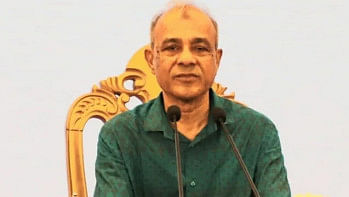Edible oil prices: Even record imports fail to arrest hike

Despite record imports of soybean oil in the first quarter, consumers are having to pay an additional Tk 36-38 for every litre of non-bottled soybean oil over the price set by the government.
Each litre of non-bottled palm oil also costs Tk 21 more than the price fixed by the government.
From January to March, businesses imported 10.22 lakh tonnes of edible oils, which is nine percent more than the volume imported during the same period last year, according to data from the National Board of Revenue.
Despite this, wholesalers and retailers claim that supply shortages were driving the prices up.
Market insiders say oil refinery owners, dealers and brokers were creating the artificial crises.
At the end of March, the government fixed the wholesale price of non-bottled soybean oil at Tk 134 a litre and Tk 136 a litre at retail. But in Khatunganj, arguably the largest wholesale market in the country, the wholesale price yesterday was Tk 164 and retail Tk 174.
Traders said the price of non-bottled soybean oil increased by at least Tk 8-10 over the last week. The price of bottled oil has not increased but there was a crisis of 5-litre and 3-litre bottles.
Contacted, SM Nazar Hossain, president of the Chattogram chapter of the Consumers' Association Bangladesh, blamed poor market and refinery monitoring for the situation. "The government's duty waiver on edible oil is not benefitting the consumers."
The government on March 10 waived 15 percent VAT on oil production and 5 percent VAT on retail until 30 June to cushion the blow of price hike in international market. Market insiders say soybean oil was trading at $1800-$1950 a tonne, up from $1300-$1400 between January and March.
Nowshad Ahmed, a wholesaler, said a few brokers and traders in Khatunganj were hoarding edible oils. "As a result, we are spending more to buy the oil, which ultimately puts the burden on consumers," he said.
Tariq Ahmed, senior director at TK Group of Industries, a major importer, gave a different explanation. "Many wholesalers are not buying enough at once as some wholesalers are being fined for hoarding."
According to the NBR, over 6.60 lakh tonnes of palm oil and 3.62 lakh tonnes of soybean oil worth $135.11 crore have been imported through the Chattogram and Mongla ports in the first quarter.
The average import cost of palm oil is about $1,320 per tonne and soybean oil $1,405 per tonne, the data said.
Bangladesh imported 6.47 lakh tonnes of palm oil and 2.98 lakh tonnes of soybean oil worth $89.94 crore in the same period last year.
AHM Safiquzzaman, director-general of the Directorate of National Consumer Rights Protection, said, "It is not possible for us to control the market with limited manpower unless the SO [supply order] sales pattern of edible oil is changed. Refinery owners now sell SOs to a limited number of their dealers and brokers and they change hands several times before products of those SOs go to the wholesale market. As a result, the price goes up several times before the product reaches the market from the mill gates."
Safiquzzaman, also an additional secretary (IIT) of the commerce ministry, said that market control would be difficult if the number of intermediaries is not reduced and local administration plays an important role to ensure market stability.
Sumani Akhter, additional deputy magistrate in Chattogram, said multiple teams of the district administration are monitoring the market regularly.

 For all latest news, follow The Daily Star's Google News channel.
For all latest news, follow The Daily Star's Google News channel. 








Comments